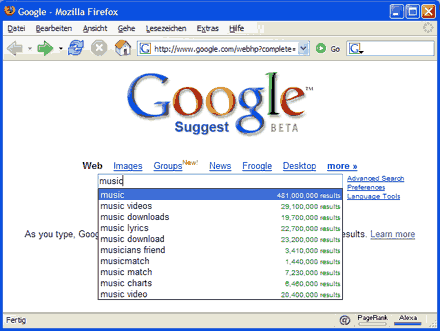How I reached #1 in Yahoo! Part 1
by Admin
by Michael Rock
http://www.theinternetpresence.com
By accident, no all that reading and studying statistics finally paid off. I started out by reading articles from people with opposing views and trying to figure out who was wrong and who was right. To find the right person to listen to I didn't only look at his educational background, but was more interested in his results. Good thing too, because results I found. And I hope people look at my results to help them reach #1.
In the past I had a great working simple traffic tracker on my site that started stated someone visited my site by typing in 'online editor flash sites' into Yahoo!. I went to Yahoo! And typed in the keyword phrase and found out I hit #1 out of 1,040,000 hits! Two weeks later I dropped to #2 and found out that my other site took #1. Now I had the #1 and #2 position in Yahoo!. My world changed forever and at that moment and never will go back. Today I have more sophisticated software, charts, data, articles, and trends referenced for my webs posted on the wall. I maintain contact with forum discussions and receive up-to-date news in my email telling me of changes taking place. I have achieved the top 10 list in the top 3 search engines (Google, Yahoo!, and MSN) and wish to educate you on how to do the same.
Which file ending is better?
by Admin
Copyright by Axandra.com
Web site promotion software
Some webmasters wonder whether they should use .htm or .html as the file extension for their web pages. Rumor has it that some file extensions make it more difficult to get indexed by search engines.
Ezine Advertising Tips
by Admin
by Mario Sanchez
http://www.theinternetdigest.net
Ezine Advertising is a great way to deliver highly targeted traffic to your website. If you pick the right ezines, and the right type of ads, you will experience above-average conversion rates for the product you sell.
Search 2005
by Admin
by Rob Sullivan
http://www.enquiro.com
2004 has been quite a year. We saw the emergence of 2 major players in search debuting their own technology, while the third recently doubled the size of its search index, and filled its founder's pockets with money.
We also saw improvements in how the engines rank sites, and how often they spider and index.
So, what will 2005 bring? Let me give you my opinion:
The End Of Marketing
by Admin
by Brent Filson
http://www.actionleadership.com
Working with top companies worldwide in all major sectors for 20 years, I've discovered that few of them come even close to achieving their potential results.
A key reason is that their leaders "don't know that they don't know".
They don't know that marketing as we know it has come to an end. A more successful growth-dynamic must replace it. That dynamic is tied to human emotions and the results-producing actions those emotions trigger.
Understanding Email in All Its Forms
by Admin
by Eileen Parzek, © 2004
http://www.soho-it-goes.com
Although most everyone today is very familiar with email basics, there are some other aspects to email which you might not completely understand. Whether list-servs, auto responders, aliases or forwarding, this article aims to demystify all the forms of email for you, once and for all.
At its most basic, email is simply a text message sent to a unique address via a computer network. The address always has a user name and a domain name, the combination of which is unique. The user name is before an @ sign, while the domain name after it always has an extension like dot com or dot org. So, every email in the world follows the format of -email-
How to optimize your Google AdWords campaigns
by Admin
Copyright Axandra.com
Web site promotion software tools
Google AdWords are small text ads that appear next to the search results on Google. In addition, these ads appear on many partner web sites, including NYTimes.com (The New York Times), Business.com, Weather.com, About.com, Lycos.com, iVillage.com newsletters and many more.
The Google Network is the largest online advertising network available, reaching over 80% of 30-day US Internet users.
VOIP basics and the benefits for ecommerce
by Admin
by Michael Bloch
http://www.tamingthebeast.net
I've mentioned VOIP several times over the last year in my Web marketing and Ecommerce News segment and thought it was time to write a dedicated article on the subject. This technology has many traditional phone companies shaking in their booties, and for good reasons. First, the basics:
The new Google Suggest feature
by Admin
Copyright Axandra.com
Web site promotion software tools
Google Labs have just released the beta version of a new Google tool: Google Suggest. As you type into the search box, Google Suggest guesses what you're typing and offers suggestions in real time:

Desktop Search and Search
by Admin
by Rob Sullivan
http://www.enquiro.com
As you have probably heard by now, Yahoo has entered the desktop search fray, planning to release a Yahoo! branded desktop search in January. This now means that there are close to 1 dozen vendors supplying free desktop search.
While this may be great for users - at least users like myself who like cool new applications - it does have implications to those attempting to position their sites on the search engines.
When you have Google desktop search installed on your computer, and you launch a search on Google you will notice that desktop search results appear at the top of the search results page.
While this is handy for the user - it makes it more difficult for the search marketer to gain exposure
News Categories
|
|
|